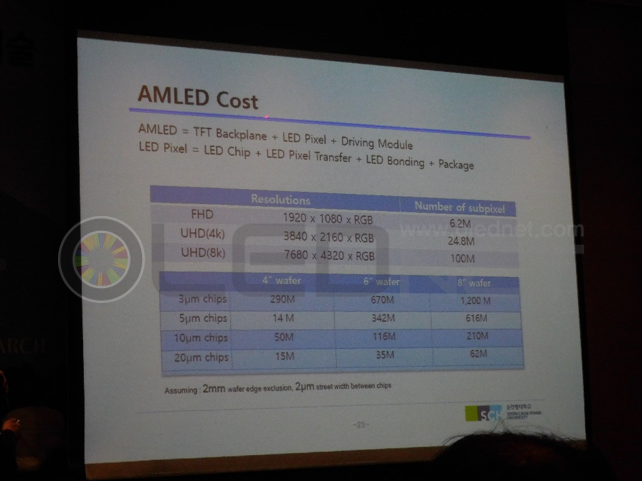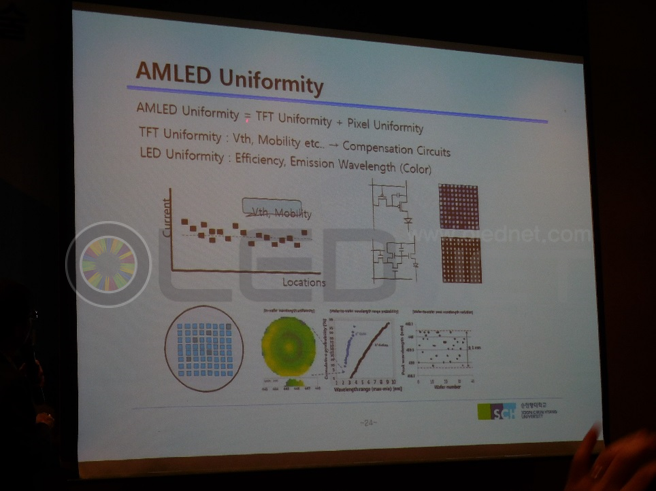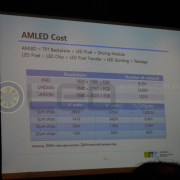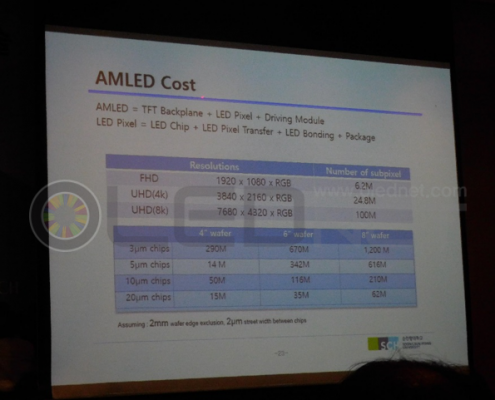Micro LED TV, is the price competitive compared to OLED TV?
“It needs to consider how to resolve the price competitiveness compared to other displays, such as OLED, before Micro LED is to be applied to the big screen TVs of 60 inches and 70 inches in future.”
Moon Dae-Gyu, professor of Soonchunhyang University, mentioned as above while explaining the micro LED technology at the ‘latest OLED technology trends seminar’ organized by UBI Research in Seoul COEX on April 26th, 2018.
“Micro LED is attracting attention as a technology capable of realizing a high resolution display of 1,000 ppi or more. Since micro LEDs are individually obtained from a LED wafer by the photo process, they are not affected by the size and shape of a substrate, and have the merits that the advantages of existing LED such as luminance, lifetime and low power consumption, can be applied as they are.” professor Moon added.
In addition, it is expected to be a good environment to show the advantages of micro LED in the field where power consumption is very important, such as wearable appliances. He also predicted that it is possible to implement display in no tile form in very large display area such as public display and digital wall, which might be easy segments for micro LED to enter.
However, regarding the mass production of micro LED TV, which is becoming a recent issue, Moon said, “In order to implement 4K, 24.8 million LED chips (with a size of 10 μm/chip) are required. At the 4 inch wafer, which is currently being commercialized, 4K panels can be produced twice only. Thus, it is doubtful whether micro LED is competitive compared to LCD and OLED in terms of mass production.”

Commenting about TFT uniformity and pixel uniformity of the micro LED, he mentioned “TFT uniformity can be sufficiently compensated by the compensation circuit that is currently applied to OLED, but it should be considered how to solve the color imbalance problem.”

Micro LED TV, which was introduced by Samsung Electronics in CES 2018, and received a lot of attentions at the time, but it was disagreed about commercialization. In particular, Kang In-Byung, CTO of LG Display, pointed out, “About 25 million LEDs are needed to realize 4K micro LED TV. Even if 1 LED is 1 Korean Won, the cost might be 25 million. And when the circuits and boards are added, it would be a huge price.”


